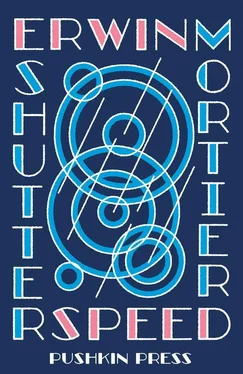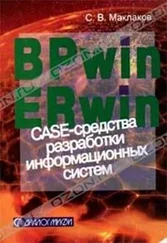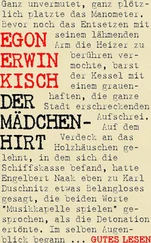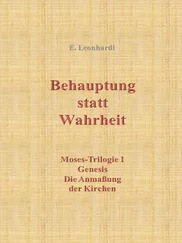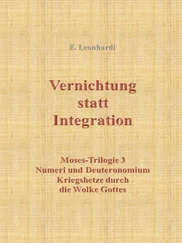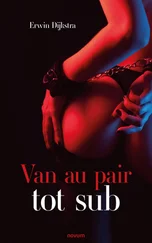IN THE END I SETTLED FOR THE SECOND MOST EXPENSIVE coffin, mainly because the undertaker’s snootiness got on my nerves and I wanted to be done with it. The nine-thirty service — the least expensive option for a change — was attended by no more than a dozen mourners. A tremulous requiem rose from the throats of four old biddies in the choir. The priest hurried through the rites with a voice that seemed to issue from a drainpipe, and during his sermon confused Aunt’s name with that of the deceased due to be consigned to the earth an hour later.
It was February, not the jolliest of months in which to die. Beyond the cypresses enclosing the graveyard I glimpsed the manor, its windows all shuttered and the beeches spreading leaflessly on either side. In previous years I had heard that the house was mostly unoccupied, except for a few weeks in summer and the occasional weekend during the hunting season.
‘That hussy’, as Aunt always referred to the girl, had in the meantime become engaged, perhaps to one of the posh young men dancing attendance on her one evening in the foyer of a Brussels theatre. It was the only time I’d set eyes on her since I left the village, and I was holding a glass of white wine in each hand as I made my way to the bench where my mother was waiting for me, no doubt gauging whether I was sufficiently at ease in what she called ‘the world’.
Isabella Van Callant. She must have been about eighteen at the time. She wore her jet black hair in a thick pony tail threaded with strands of glitter, and laughed uproariously each time one of her admirers leaned over to whisper some little joke in her ear. I thought she was showing off.
She did not recognise me. Our eyes met, and she fixed me for a moment or two, during which a light frown spread across her forehead. Perhaps the sight of me tripped some vague recognition, perhaps I was just staring at her too openly.
She turned away. Her low-cut dress exposed a back and shoulder-blades dotted with moles.
‘T’es maigre comme un clou,’ I said to myself.
I stayed at the graveside until the workmen were ready to heave the slab in place. When Uncle Werner died Aunt had ordered her name to be chiselled into the bluestone in addition to his, and her date of birth followed by a dash, which could now be complemented by the date of her death.
Since then the concession has been extended twice already. Eternity seems to be less and less durable these days. On both occasions I hesitated by the reception area in the council office, thinking how absurd it was that even the dead were charged for bed and board despite a leaky roof and mould-infested walls, but both times I signed my name at the bottom of the form and paid the dues. That burial vault is a millstone round my neck, or an anchor, or a stake in the ground to which I am chained like a sheep in a field, and I cherish my chain.
The grave resembles a king-size double bed, notwithstanding its triple occupancy. On the mattress lies a crucifix of polished black granite. Aunt resides on the left-hand side, and on the right, roughly at Uncle Werner’s feet, rests my father, considerably smaller in death than his twin brother, although the reverse was true in life. I picture them sometimes, crumpling up with laughter on the shared, heaving mattress, like children staying over at a friend’s house.
The monstrosity was paid for by my mother, so I learned later. Even now, when I stand at the foot of that grotesque cradle of death, I have a feeling that they were somehow let down, done down, done away with, no doubt for my own good.
The anger welling up each time I stand there is not directed at them, but subconsciously at my mother. My mother, who enabled me to attend the best schools, to travel as much as I pleased and to take my pick from the pert middle-class girls she presented to me like strongly scented bouquets.
I suppose I paid her back by adopting the role of obnoxious teenager. The moment I realised this all the resentment fell away, and I was left merely with a person in her late fifties who dyed her hair the wrong colour and wore oversized earrings, a woman who had no connection whatsoever with the beautiful, dark-haired young mother looking down at the small boy hugging her shins as he watches the ducks in some pond.
The grandchildren she hoped would some day arrive never came. I would have made a far too posthumous sort of father.
I was taken ill that Friday evening in September when I returned to Stuyvenberghe after my first fortnight at the Jesuit school. I still take the same trip now and then, just to feel the city leaching from my shoulders as the train rumbles across the River Leie.
I had felt a hot swelling in my throat all week, on top of which came a splitting headache in the last couple of days. When I swallowed I could hear my eardrums creak. I felt bruised all over like a fruit about to burst with fermenting pulp.
When the train left the last suburbs behind and started across the river, I propped my elbows on the table beneath the window and pressed hard, as though moving my bowels. Release took minutes to arrive, racking my midriff like birth pangs until it all came out in waves.
I felt myself gushing out of my body and turning into someone else in the same compartment, someone with a stricken look, watching the tears run down the face of the child sitting opposite with his cap on and his travellingbag between his feet, suffocating in a sadness both harrowing and brief.
I heard my own sobs reverberate against the wood cladding of the compartment. I heard the rails thrum beneath the wheels, rumble in my midriff. Through the window I saw vegetable plots, garden sheds and alder bushes flash past in the twilight of a day that had known little sunshine. It was around seven, the evening rush hour was over. There was no one in the compartment besides me.
We sat there like brothers, or like sweethearts who haven’t dared to tell their parents yet, forehead to forehead, mouth to mouth. I felt the tears trickling down my hands into my sleeves and my cap sliding off my head and on to the table.
Someone slid the door open. The ticket inspector rapped his punch against the metal surround and said good evening. While I hunted frantically in my pockets he whistled a jaunty tune. Perhaps he was new at the job. When he handed me my ticket back I wanted to crawl under the bench out of mortification.
I pulled myself together, dried my cheeks with my handkerchief, folded my arms and leaned forward on the table. I tried to count the far-off church towers, but in the gathering dusk it was increasingly hard to avoid seeing my face reflected in the glass.
*
In the blue evening haze, the village roofs were settling in around the church like lambs in the fold, under a huge sky balancing precariously on the bell tower. I could hear the high-tension cables hum as the train gathered speed on its way to the horizon.
The cafés on the station square had already lowered their blinds. A cat ambled along the edge of the pavement. From some buildings wafted the sound of the evening news; elsewhere spoons clattered in saucepans.
Past the rectory garden I turned left to strike across the churchyard as usual, but I came upon a metal barrier behind which a tent of grey plastic sheeting had been erected. Red-and-white strips had been tied between the lindens, one of which had a sign nailed to its trunk saying WORKS EXIT. Muddy tyre tracks fanned out on the asphalt of the high street.
I had to take the long way home, past my old school and past Miss van Vooren’s house, which was engulfed in the shadow of the cedars that would, in years to come, press against its walls like fingers. I was shivering with fever, my cheeks were on fire.
Dogs began to bark in the back gardens on the other side of the hedges lining the church lane. Worm-eaten apples hung from the branches among the last remaining leaves. I felt my weekend bag scraping against my ankle. The fever engulfed me in waves of Saharan heat.
Читать дальше
